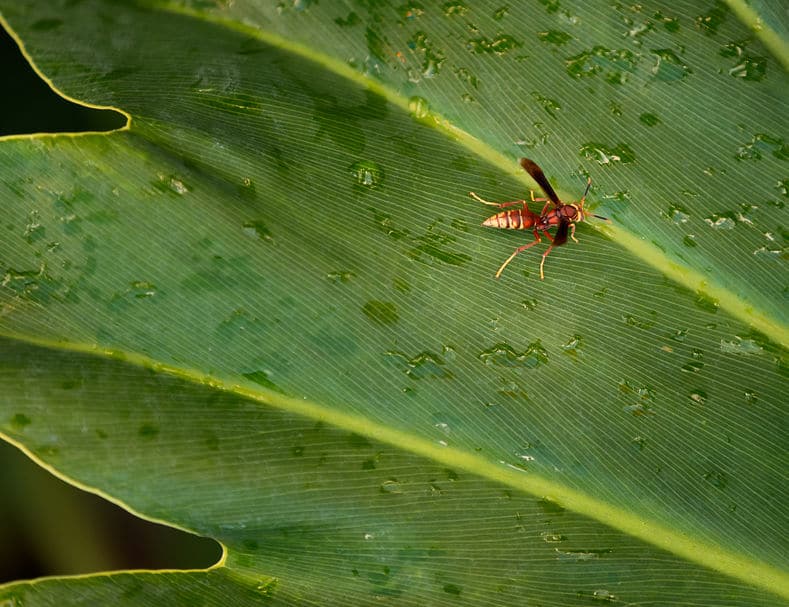You may have wondered if rain makes it safer to approach wasp nests or if the rain will keep wasps inside their nests.
Wasps can fly in the rain. Wasps fly slower in the rain and have to exert more energy which means they are less likely to prey on insects during heavy rain, but they will continue to search out sources of sugar. Prolonged periods of rain throughout the spring and summer will reduce wasp numbers.
let’s take a closer look at how rain effects wasps.
What impact does rain have on wasp’s behavior?
Rain makes foraging for food much more difficult for wasps. Wasps during the spring and summer are feeding themselves with sugary foods like nectar, but actually spending most of their time hunting insects to feed to the developing wasp larvae in their nests.
The extra energy needed to navigate in the rain means that wasps need more sugary foods for themselves, and have less energy to prey on insects to feed the hungry wasp larvae. (source) For this reason, a very wet spring and summer is likely to reduce wasp numbers overall as it makes them less productive.

Does water kill wasps?
Water does not kill wasps. They breathe through holes on their abdomen, but these holes can be closed by the wasp. Stored oxygen stores in their bodies can, with reduced activity, keep wasps alive for many hours. Being soaked by heavy rain will not have any long term impact on the individual wasp. (see this article)
A very few wasp species such as the Godzilla wasp found in Japan are even aquatic and will swim and even specialize in catching their prey by diving under the water.
How else can rain affect wasps?
Many wasp species prefer to make nests in the ground. Yellow-jackets are one such species, as is the common European wasp. Very heavy rains can flood their nests. While the water is unlikely to kill the wasps it could kill the developing wasp larvae in the nest, and it will severely disrupt the ability of the colony to develop as they will need to start again producing a new nest.
Wasps with damaged nests are more likely to be a bother to people as they will come looking for food sources. Much of the wasp’s food actually comes from sugar excreted in the saliva of the developing wasp larvae in the nest. So, if they lose their nests they also lose a valuable food source. With no larvae to feed they will also have more time to scavenge around humans rather than preying on insects.
Why do wasps prefer hot dry conditions?
In general, wasps thrive in warm dry weather as there is more food available and less energy is needed for the wasps to fly. More food means wasp larvae develop more quickly and so the size of wasps colonies can multiply significantly.
Cold weather, below 50°F (10°C) will shut down wasps’ nervous systems and they will become inactive and die. See this article.
